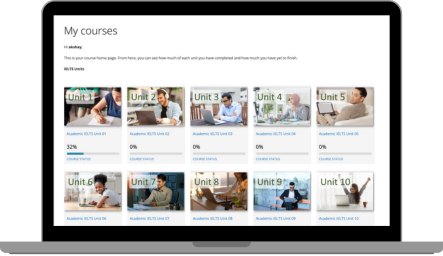Table of Contents
- 1. How Long Does It Take to Prepare for IELTS?
- 1.1 What is Your Current Level in the English Language?
- 1.2 How Many Hours Can You Spend Studying for the Exam?
- 2. Some tips for IELTS Preparation
Preparation for the IELTS is a serious process that requires an appropriate approach and attitude. Don’t hesitate to check the necessary tips to achieve the best score possible.
The International English Language Testing System (IELTS) is a standardized test designed to evaluate a candidate’s level of English proficiency for the purposes of working or studying in an English-speaking country. Preparation time for the IELTS depends on the individual, their existing knowledge, and skill set, rather than a set number of hours.
Seventy-seven percent of professionals recommend giving oneself at least a month to prepare for the test. If you spend three to four hours every day on preparation, Monday through Friday, including the weekends, you will see better outcomes.
How Long Does It Take to Prepare for IELTS?
Preparing for the listening part of the exam typically takes about a week or two, while preparing for the writing portion might take anywhere from a week to four weeks. Two weeks may be needed for the reading and speaking sections of the exam. However, it does vary based on a person’s innate talent and aptitude for learning.
Wondering how much time is required to study for the IELTS test preparation, there are specific questions that you need to ask yourself.
What is Your Current Level in the English Language?
Preparation can be completed in under a month if you have a firm grasp of the English language. People with a high level of English proficiency need simply spend a short amount of time studying exam material and practices.
Whereas, those who aren’t fluent in the language will require extra time to get ready because learning it isn’t simple. If you have trouble reading, writing, or speaking English, you will face a number of challenges during the exam that will have a detrimental effect on your final grade.
You need to work on your vocabulary and understanding. Depending on how quickly you pick up new information, improving your language skills could take weeks or months. You can gauge your readiness for the final exam by taking practice tests.
How Many Hours Can You Spend Studying for the Exam?
Sixty-five percent of IELTS teachers advise students to put in three to four hours of daily study time. Depending on your other commitments (such as work, school, and family), you can spend anywhere from three to four hours each day preparing for the IELTS.
The IELTS preparation online along with all other responsibilities can be tough and time-consuming, so you definitely need to balance everything with good time management techniques.
But if you are on a break and only studying for IELTS, things are way different. You can focus all your time and energy on it and be ready for the exam sooner.
Do you study alone?
Individuals who are curious about whether or not they may prepare for the IELTS on their own will be pleased to learn that they can. Nothing will stop you from succeeding if you have all the things you need and choose to study independently. Your final grade will reflect the additional time and work, but it will be worth it.
Certain individuals value the assistance of knowledgeable third parties above all others. Professional guidance is crucial for assessing one’s capabilities and developing a winning game plan. It’ll help you get where you’re going faster and easier.
Some tips for IELTS Preparation
- First, you need to figure out where you stand and schedule your exam accordingly.
- Chalk out a study plan and follow a routine.
- Figure out the best time of the day (for example night or morning) when you can focus better.
- Identify your weaknesses and start working on them.
- Keep doing self-assessments to track the improvements in your performance.
- Only schedule your final exam date when you are confident enough and fully prepared.
Conclusion
The amount of time it takes to prepare for the IELTS exam is very variable and is based on a number of factors, including the individual’s existing knowledge, study habits, and learning speed. Stay calm and don’t overextend yourself out of worry; a good sense of perspective and moderation will go a long way toward making the studying trip more enjoyable.









